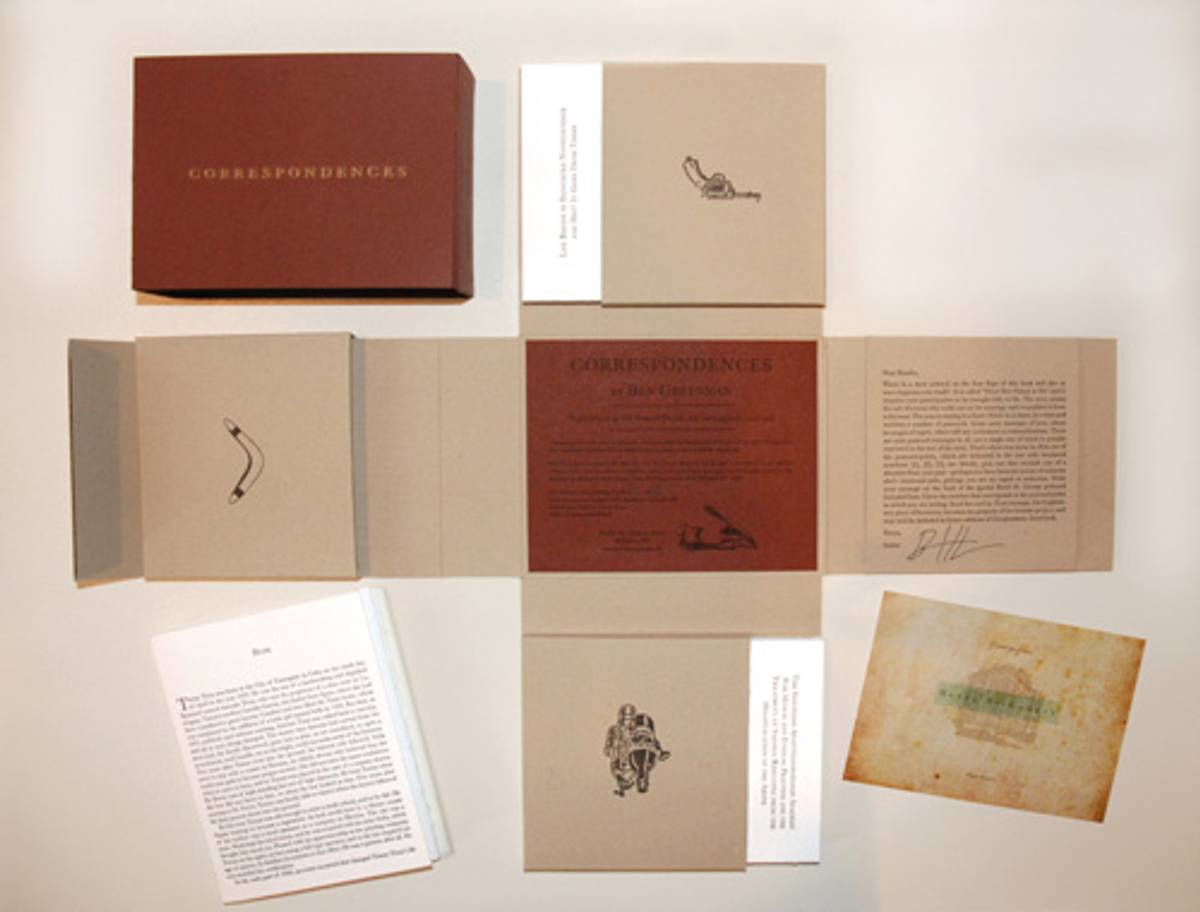When it comes to writing fiction, Ben Greenman works alone—or did, anyway, until last spring. That’s when Greenman, a New Yorker editor and author of the books A Circle is a Balloon and Compass Both, Superbad, and Superworse, attended Reboot, an annual gathering of Jews who are more or less under 40 and more or less unaffiliated, and who convene to talk about what being Jewish means—or doesn’t mean—to them.
&lquo;I went to Hebrew school until bar mitzvah, but I didn’t believe any of it, and I said so,” explains the 39-year-old, whose latest project is Correspondences, a limited-edition series of short stories about unhappy people trying to figure out what makes them that way. Still, Greenman (who’s also a Nextbook contributor) found himself open enough to the idea of discussing matters of identity that he agreed to go to Park City, Utah, for the Reboot summit. You get to a certain point of your life and even if you have no interest in accepting a person’s system, you want to reopen the issue for yourself,” he says. Things happen—parents get old, you have children (his are seven and four; the family lives in Brooklyn)—and you want to know you have at least grappled with one of the biggest issues, which is what is there beyond this, even if you’ve decided there’s nothing.”
In Park City, Greenman found that Reboot’s operating principle was based on collaboration, a concept he has traditionally backed away from, preferring to control everything from the arc of a story to the typeface in which it is printed. Participants were encouraged to argue and discuss, and, after they returned home, to work together on projects—publications, films, musical undertakings, and books—that allow them to continue thinking about what being a Jew means. At around the same time that he was getting more comfortable with the idea of creative partnership, Greenman was talking to Alex Rose and Aaron Petrovic, who run the independent Hotel St. George Press, about publishing some of his stories.

We came up with an idea for it—high end, handcrafted letterpress edition that is somewhere between a book and a Fabergé egg.” Though decidedly less sparkly (paper-bag brown and white are the predominant colors) than those storied jewels, Correspondences does indeed open; flaps unfold to make an L, with accordion-shaped stories tucked into pockets of the letter’s arms. The stories themselves are short bursts” in which there’s space to work out issues about God, about family, about responsibility.”
But this time, Greenman isn’t working out these questions by himself. What He’s Poised to Do,” one of the seven stories in the collection, features an unhappy man who decides to extend a stay at a hotel where he does business, leaving his wife and child behind, to figure out what ails him. In the course of the proceedings, the man writes a postcard to his wife. Later, a woman he meets at the hotel bar describes the postcard she sent to an ex-lover. The contents of these postcards, and seven others mentioned throughout the piece, are not accounted for in Greenman’s tale. Instead, Correspondences includes one blank postcard for the reader to compose and send back to the publisher for possible inclusion on a website or in subsequent editions.
This is, he says, a way for people to work through the conflicts in it—whether people have ever betrayed or been betrayed. I would say for 95 to 100 percent of the people the answer is yes.”
Though writers are welcome to submit postcards, all of which will be anonymous, none of the characters whose words readers can imagine are identified themselves as writers. In the story the guy isn’t identified as a writer. He writes because that is what he has to do,” Greenman says. It’s a necessity, not by professional design. I would like to see that process really happen. This is a game version of that, but I still want to see that happen. It would be most interesting for me to get people who sit in the Metrocard booth and they’ve been in a breakup in the past six months. They have access to these emotions.”
Sara Ivry is a senior editor at Nextbook.org and hosts the site’s weekly podcasts.